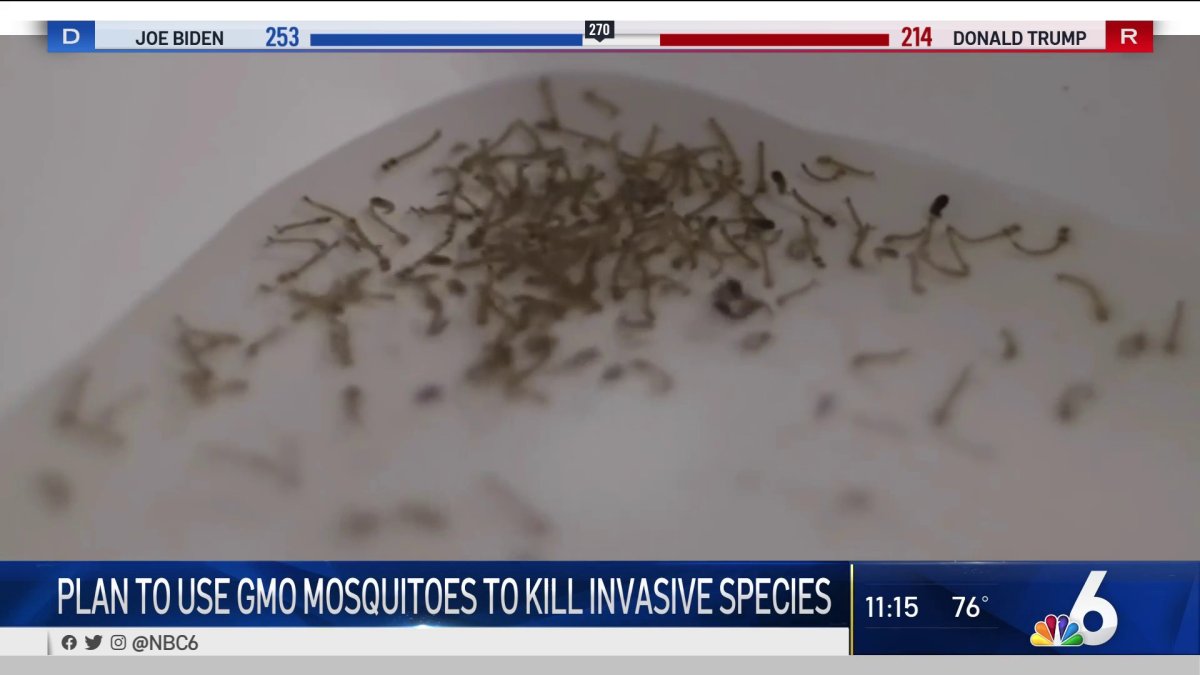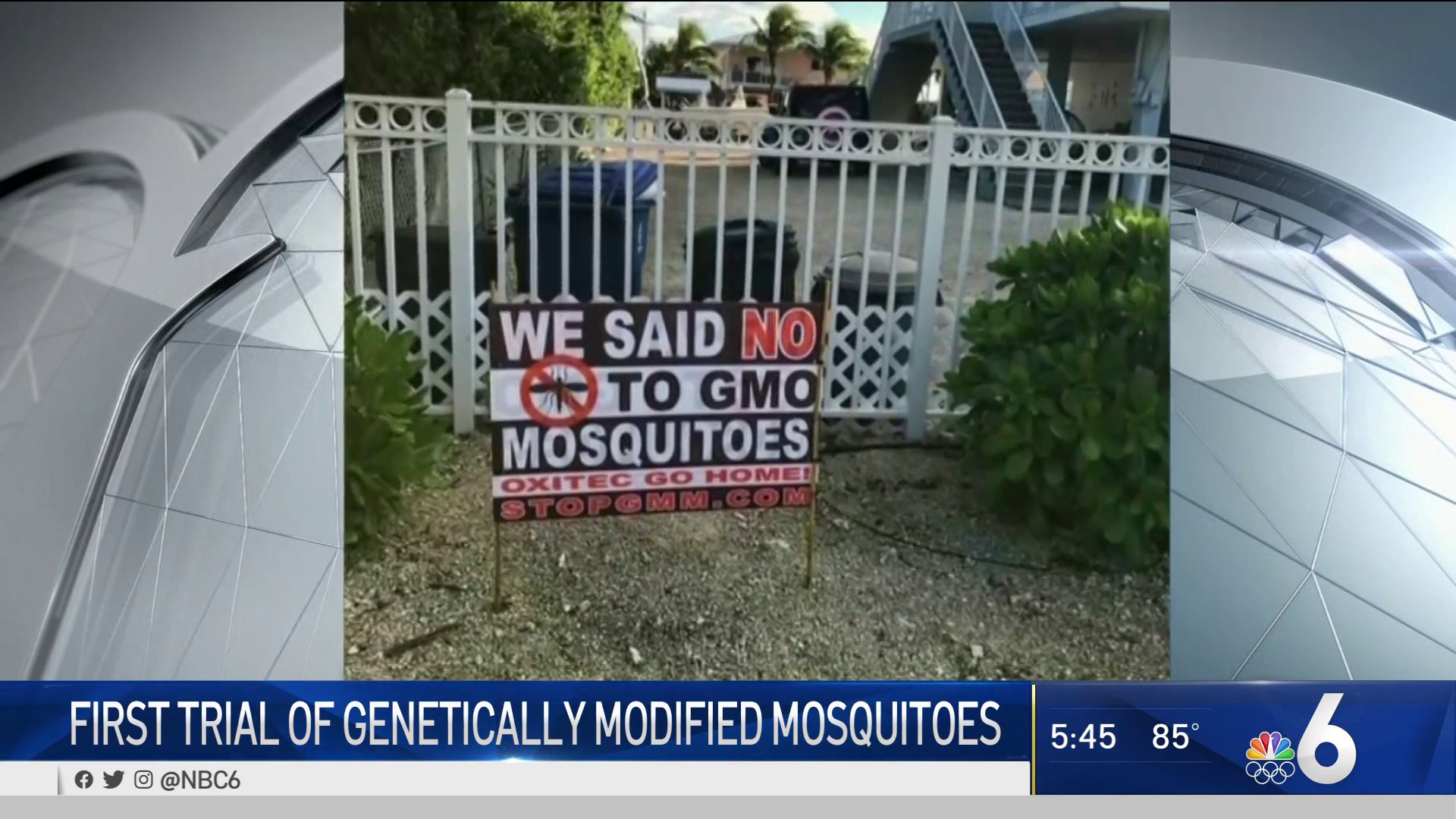
Scientists are a few months into an experiment to stop an invasive mosquitoes. Their weapon of choice? A genetically modified mosquito. But as Meteorologist Steve MacLaughlin explains, some question the strategy.
Nearly 144,000 genetically modified mosquitoes will be released in South Florida this week as part of an effort to reduce the population disease-carrying mosquitoes.
The landmark release of GMO insects marks the beginning of the U.S.-approved program to control the number of Aedes aegypti mosquitoes in the area.
Watch NBC6 free wherever you are
The project will place boxes loaded with Oxitec’s non-biting male mosquitoes in six areas around the Florida Keys to mate with biting female mosquitoes. As a result of the encounters, the female offspring will not survive and – hopefully – will reduce the dangerous mosquito's population in the area.

Get local news you need to know to start your day with NBC 6's News Headlines newsletter.
Where will the mosquitoes be released?
The project has placed both release and non-release boxes and netted quality control boxes in six locations in the Florida Keys. Three were placed on Vaca Key, two on Cudjoe Key and one on Ramrod Key.
How many genetically modified mosquitoes will be released?
Local
Beginning this week, the company says that less than 12,000 mosquitoes are expected to emerge from each release location in the Florida Keys for approximately 12 weeks.
What is Oxitec?
Oxitec is a biotech company that creates technologies – including genetically modified mosquitoes – designed to sustainably and safely control insects that transmit diseases and destroy crops.
“We’re focused on demonstrating the value this technology can have for Florida Keys residents, communities and business owners, while protecting the Keys’ beautiful and sensitive habitat that we all value so much,” said Oxitec CEO Grey Frandsen.
What diseases do mosquitoes carry?
Officials say Aedes aegypti mosquitoes make up about four percent of the population in South Florida but are responsible for most mosquito-borne diseases transmitted to humans. Those diseases include the Zika virus, dengue fever, yellow fever, and other illnesses that could be potentially deadly for humans and animals.
Has releasing Oxitec’s GMO mosquitoes worked before?
Yes, according to Oxitec.
The company says it previously conducted a similar release in Brazil and found that it’s genetically modified mosquitoes helped reduce the population of the disease-carrying mosquito by up to 80 percent in just 13 weeks.
How has Florida tried to control mosquitoes in the past?
The state’s battle to control the disease-spreading mosquitoes has been long and on-going.
The first attempt to reduce the population with larvicide, an insecticide used to control mosquitoes by killing them before they become adults, failed. Another attempt to use adulticide, which is an insecticide that kills adult mosquitos, also failed.
That’s when Oxitec was tapped to bring in its genetically modified insect into the fight.
“As we are seeing development of resistance to some of our current control methods, we are in need of new tools to combat this mosquito,” said Andrea Leal, Executive Director Florida Keys Mosquito Control District in a press release.

